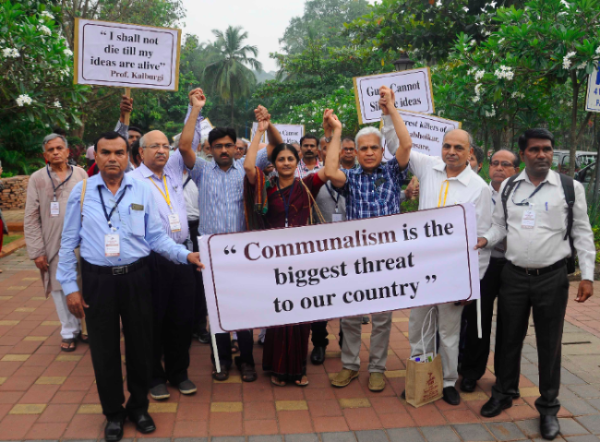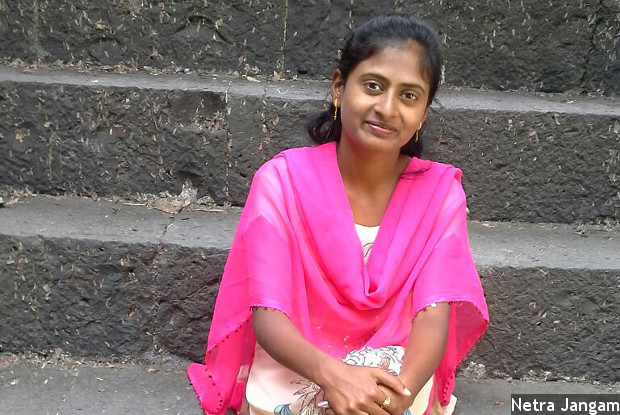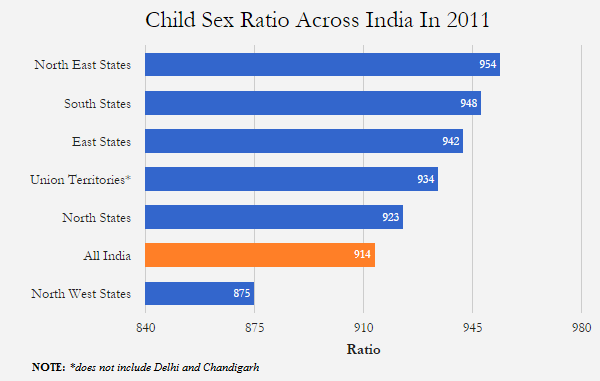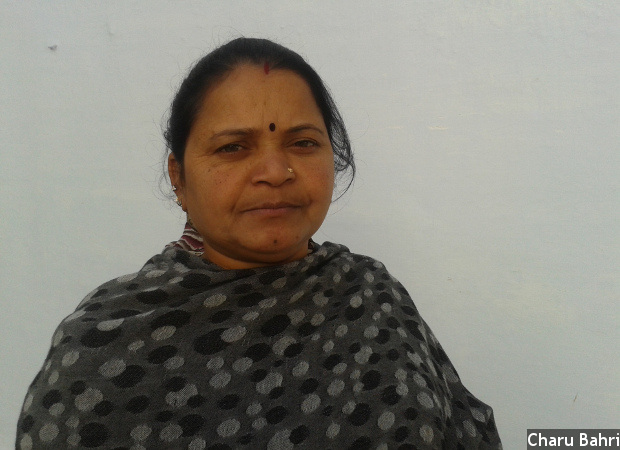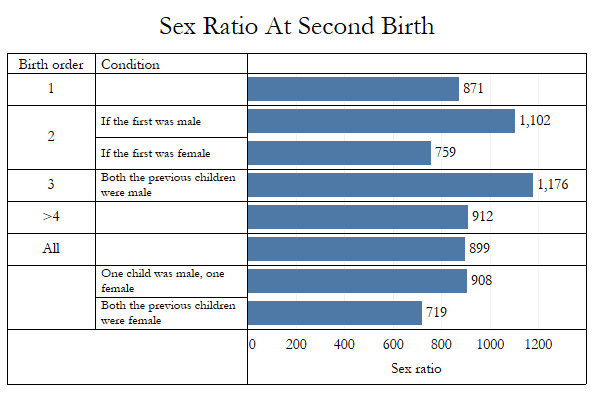While the Dalit upsurge in Una in Gujarat received widespread attention, an atrocity against Dalit youths being thrashed in Muzaffarpur, Bihar at the same time did not. It remained merely a Paswan versus Bhumihar confrontation. Dalits remain a differentiated group in Bihar, and have a long way to go before the community can rise above the imperatives of the here and now and assert as a conglomeration.

In July 2016, when the national media gaze fell on the Dalit upsurge in Una taluk of Gir Somnath district, Gujarat, another incident of Dalit brutality on Dalit assertion occurred in a colony called Babu Tola in Paroo block in Muzaffarpur district, Bihar but went relatively under-reported.
Two Dalit youths, Rajiv Paswan and Munna Paswan, allegedly attempted to steal a motorbike of a local Bhumihar. The two Paswans were thrashed by a mob and a member of the mob urinated into the mouth of one of the Paswans. Rajiv Paswan’s mother, Sunita Devi, lodged a first information report with the Paroo police against 11 persons, including Mukesh Thakur, the husband of the village sarpanch.
The police arrested two of the 11 accused, and confirmed the thrashing of the two Dalits, while the allegation of urination was said to have not been substantiated. Meanwhile, the opposition parties in Bihar made it a huge issue, using it as a stick with which to beat ruling Nitish Kumar government. The Union Minister and the Lok Janshakti Party (LJP) president, Ram Vilas Paswan, visited the family of the two Dalit youths and demanded an inquiry by the Central Bureau of Investigation (CBI).
Though, in the state assembly, the opposition leader of the Bharatiya Janata Party (BJP) Sushil Modi lashed out at the Nitish Kumar administration, Union Minister Giriraj Singh, a Bhumihar leader from Bihar, steered clear of the issue. Initially, the incident created a very charged political atmosphere in Bihar. Some political observers even recalled 1974–75, when the Nav Nirman Andolan of Gujarat almost coincided with the Jayaprakash Narayan-led Sampoorna Kranti in Bihar, which eventually forced the Congress government to impose the Emergency. Ultimately, the Congress party faced a steady decline in subsequent decades, particularly in Bihar and Uttar Pradesh.
Many hoped that there would emerge a huge Dalit mobilisation behind this atrocity, and that it would also merge with the ongoing fierce Dalit upsurge in Gujarat led by Jignesh Mewani. But, that was not to be. The politics around this incident of Dalit atrocity in Paroo did not go far in Bihar. Why?
Morphology of the Issue
Atrocities against the Dalits could not be articulated to polarise the community and mobilise it into a Dalit versus Savarna Hindu affair. It remained merely a Paswan versus Bhumihar confrontation. In Bihar, unlike many other parts of the country, Dalits remain a highly differentiated group, which is, therefore, not a consolidated socio-political constituency. There remains a chronic resentment against the Paswan (Dusadh) hegemony on the part of non-Paswan Dalits. Dusadhs were first among the “untouchables” to have formed their caste association in 1891, asking for Kshatriya status.
Out of 23 Dalit communities, 22 are now categorised as Mahadalits. Even within the Mahadalits, four communities—Ravidas, Pasi, Dhobi and Musahar—are perceived as dominating the remaining 18 Mahadalit castes. The differentiation between Mahadalits and Paswans, and the intra-Mahadalit dichotomy between groups having an upper hand therein and rest of the Mahadalits is a scenario making Dalit unification, a fond hope, difficult to realise. (Arguably, an almost comparable situation obtains within the larger genus of the Other Backward Classes (OBCs), where out of 131 groups, 32 communities are most backward [ati pichhrha]; which partly explains why Nitish Kumar remains shaky about his political base vis-à-vis his domineering ally, Lalu Prasad Yadav.)
Somewhat analogically, Muzaffarpur is also known for the long-standing political rivalry between the two upper castes, the Bhumihars and Rajputs. This has been the case since the 1920s, and has been articulated in Babu Janakdhari Prasad’s Hindi memoir, Kuchh Apni, Kuchh Desh Ki (1970). Prasad was a noted freedom fighter from Muzaffarpur. This rivalry hots up during elections, coming to the fore at all times except when the polarisation is along the backward–forward axis or there is a religious binary of the Hindu–Muslim divide.
Another explanation could be the absence of a numerically visible Dalit middle class that could provide the raison d’être for intra-Dalit cross-caste issues and provide intellectual, strategic and logistic sustenance to Dalit agitations. Though Dalits constitute only about 15% of the total population of Bihar, they form 34% of the land labourers. As many as 70% of the Dalits live below the poverty line (BPL); only 5%–8% of Dalits have toilets and electricity connections in their houses.
Though Dalits constitute only about 15% of the total population of Bihar, they form 34% of the land labourers. As many as 70% of the Dalits live below the poverty line (BPL); only 5%–8% of Dalits have toilets and electricity connections in their houses.
In short, socially and economically they have a long way to go before the community can rise above the imperatives of the here and now and assert as a conglomeration against the dominant Savarnas, many of whose pelf and privileges are at the cost of Dalits as a whole.
In Muzaffarpur, out of 11 assembly seats, two (Bochahan and Sakra) are reserved for the Dalits. Both these seats are in eastern Muzaffarpur, whereas Paroo is in western Muzaffarpur. In the 2015 assembly elections, an adjacent assembly seat, Kanti (unreserved), was won by Ashok Choudhry, an independent Dalit candidate, replacing the incumbent Bhumihar, Ajit Singh. Kanti is regarded as a Bhumihar stronghold, though Pasmanda Muslims have also represented this constituency at least twice (in 1995 and in 2000). The Paroo assembly seat, adjacent to Kanti, is also regarded as being under the sway of Rajputs and Bhumihars. Generally, only these two castes have been elected from the Paroo assembly. Only once was a Dalit elected from here, when the seat was a reserved one. Hence, the wresting of the Kanti (unreserved) seat in 2015 by a Dalit was a big blow to the Bhumihars. Some of the local political observers have opined that this was an indirect factor behind the Bhumihar–Dalit conflict in Paroo.
The incumbent member of the legislative assembly of Paroo (since 2010) is a Rajput from the BJP. During 1995–2005, a Yadav represented it. Paroo is also becoming a centre of Maoist activities where Mallahs (an ati pichhrha OBC segment; fisherfolk) have considerable presence. Of late, however, a good number of Mallahs are supposed to have joined the Bajrang Dal too.1
History of Harijan/Dalit Politics
Prasanna Kumar Chaudhry and Shrikant have studied the history of Dalits comprehensively and published a book titled Swarg Par Dhawa: Bihar Mein Dalit Andolan (2005).In January 1922, Ganesh Dutt Singh (1868–1943), a Bhumihar leader, had argued for the untouchables’ representation in the councils and in local bodies. He remained the minister for local self-government during 1921–43. The point was conceded due to a variety of factors, including the Khilafat and non-cooperation movements, Gandhi’s exertions, and the “colonial knowledge” derived from burgeoning self-assertion movements in the Bombay and Madras presidencies. A Bhumihar landlord–leader, C P N Singh from the Sursand Estate2 was nominated for the untouchable seat. The untouchables being represented by the upper castes was not an isolated phenomenon as far as Bihar was concerned. Jagat Narain Lal (1896–1966) raised this issue (in the legislative council) of nominating Europeans and upper castes from the untouchable quota.
In 1932, a Harijan Sevak Sangh was set up in Muzaffarpur with three major objectives: eradication of untouchability, temple entry, and access to water wells. This was largely a pro-Congress body, which also opened three schools for Harijans in the district. In 1938, the organisation canvassed for recruitment in the constabulary of Bihar police. Nathuni Bhagat had worked towards mobilising his Ravidas community, and in April 1939, he had presided over the session of the Ravidas Sabha in Patna. As a token of remembrance, a government high school was named after him in Muzaffarpur.
Dalit Movements in Colonial Bihar
It is not that the Harijans had absolutely no participation in the freedom movement. In the Quit India Movement (1942), Jaigovind Paswan of Shitalpur was martyred at the Bidupur Bazar of Muzaffarpur (now Vaishali). Another Harijan, Budhan, also sacrificed his life for the movement. The impression that Bihar did not see any Dalit movement in colonial India has been contested by Chaudhry and Shrikant (111: 2005). They say that the struggle against untouchability and for access to water tanks/wells started almost simultaneously with such movements in western and southern India.
In Bihar, however, these movements remained pro-Gandhi. In 1923, the Arya Samaj had its annual session in Muzaffarpur. On 25–27 May 1927, their session was held at Mahua Bazar (now in Vaishali), where the Doms had raised the issue of access to water wells, and from there they took a procession to use many water wells in the surrounding areas.4 The proposal of the Temple Entry Bill of 1933 was met with fierce opposition in Bihar. Mahant Darshan Das, of the Maniyari Estate of Muzaffarpur, had particularly opposed the proposed bill by saying that such legislation will create chaos. Subsequently, another meeting of the Varnashram Swaraj Sangh was held at Pakri, a village in Muzaffarpur, to oppose the proposed bill (Choudhry and Shrikant 2005: 141–42).
Stephen Henningham points out that in 1936, a significant movement of the community of Musahars had also emerged in Tirhut (which included Muzaffarpur). It is worthwhile to recall this story of mobilisation (Henningham 1981: 1153–56).
Having organised several “social uplift” meetings, in late May [1936] their leader, Santdas Bhagat, mounted a large demonstration against a Muzaffarpur sugar factory. Unfortunately little is yet known about the background of Santdas Bhagat [alias Dadaji]. A few weeks later he drew several thousand Musahars to a meeting at Dalsingsarai in Darbhanga at which complaints were levelled against Ramasre Prasad Chaudhuri, MLC, a leading local zamindar, and against [the manager] of the Harsingpur [near Dalsinghsarai, Samastipur] sugar factory. (Henningham 1981: 1153)
According to an official report, the Musahars, subsequently, held a demonstration at the sugar factory, sent a letter of protest to Chaudhuri, and assembled in large numbers near Chaudhuri’s residence, armed with lathis. Chaudhuri gathered a large body of men and a clash seemed imminent when armed police arrived, arrested the Musahar leaders, and dispersed the crowd with a lathi charge. Later, the police charged the Musahar leaders and 30 of their followers with riotous behaviour. In the ensuing weeks, one of the Musahars held two large meetings, in which the police intervened and arrested a leading Musahar spokesman. Probably as a result of this repression, Musahar activity subsided for some months. In September 1937, Musahars demonstrated outside the Sitamarhi court when some of their caste-fellows who were undertrial prisoners were being considered for bail. Meanwhile, violence ensued and the Musahars were beaten up severely by the police. The protesters dispersed. After the Sitamarhi court incident, the Musahar protest subsided, except for a brief revival in June 1938.
Nonetheless, by and large, the Bihar Harijans remained mostly with the Congress. Their prominent leaders were Jaglal Chaudhary (1895–1975) and Jagjivan Ram (1908–86). However, in the 1946 elections in Bihar, four out of 15 Harijan members of the legislative assembly (MLAs) were from the Hindu Mahasabha. A reminder to the advocates of Dalit–Muslim unity!
There is no firm evidence that the Bihar Congress showed any interest in the Musahar campaign, though there is an allegation that at first, “certain Congress agents” were responsible for encouraging Santdas Bhagat to protest. And, it should be noted that the Bihar Provincial Kisan Sabha—a Congress socialist-dominated organisation, conventionally regarded as being on the “left” of the mainstream Congress—kept a careful distance from the poor peasantry. Thus, although it claimed to represent “all who live for cultivation,” the Bihar Provincial Kisan Sabha took little interest in the plight of landless labourers, except to assure them that there was no need for them to organise separately. Notably, Santdas Bhagat’s wife Sati (of the village Pota in Belsand, Sitamarhi) was a brave companion in his agitations.
Militant Dalit Politics
Nonetheless, by and large, the Bihar Harijans remained mostly with the Congress. Their prominent leaders were Jaglal Chaudhary (1895–1975) and Jagjivan Ram (1908–86). However, in the 1946 elections in Bihar, four out of 15 Harijan members of the legislative assembly (MLAs) were from the Hindu Mahasabha. A reminder to the advocates of Dalit–Muslim unity!
In the late-colonial period, the socialists, and in the post-independence period, the “mainstream” Dalit politics in Bihar had ignored agrarian issues. When the Khet Mazdoor Sangh was set up in August 1937 at the Hindu Sabha Maidan of Patna, comrade Manzar Rizvi had opposed Jagjivan Ram’s presidential candidature for the body, and the socialist writer and activist, Rambriksha Benipuri (1899–1968) went on to speak against the need of any such organisation.
The Bihar Harijans were alienated from the ruling Congress in a significant way. Mushahri (in Muzaffarpur) was the first to come in touch with Naxalism during 1968–70, and the counter-elitist who organised them along these lines was a Bhumihar, Raj Kishor Singh (Sajjad 2014b: 158–63). This was around the time when in southern and western parts of India, a militant Dalit politics was emerging under the intellectual and political leadership of the Dalit Panthers (1972).
Subsequently, some of the Dalit massacres, mostly in the Magadh area of Bihar, committed by the private armies of the landlords, rescripted the history of Dalit politics after the 1970s and 1980s.5 The Bihar Harijans discovered Ambedkar only in the 1980s. However, even in the 1980s, a veteran commentator on Dalit politics, Gail Omvedt (in her book, Dalit Vision, 1995), said that V P Singh and his political lieutenant Ramvilas Paswan, “fairly smothered the presence of independent Dalit leaders and movements,” whereas in the 1990s, the bulk of the Dalits remained with the OBC politics led by Lalu Prasad Yadav. In the Lalu–Rabri era, the Bochahan MLA, Ramai Ram and the Sakra MLAs were counted as Dalit leaders. Yadav kept changing the candidates who were to be fielded from Sakra in every election. They were handpicked by Yadav, mostly from among the Dalit teachers of the Lohia College in Muzaffarpur.
Conclusions
Thus, these leaders who were imposed upon the Dalits from above could never create their own mass base. These politicians had serious limitations and they expectedly failed to build up a consolidated, assertive Dalit movement. Shyam Rajak of the Lalu–Rabri era emerged as an articulate and sharp leader. Later, he switched over to join with Nitish Kumar. Yadav is believed to have been so annoyed with Rajak that with the Yadav–Nitish Kumar alliance, Yadav put his foot down to keep Rajak at bay. Rajak seems to have been consigned to political oblivion.
In recent times, Ratanlal, a history teacher in a college under the Delhi University, has been trying to organise Dalit politics in Muzaffarpur–Vaishali. But, he too is associated essentially with the Rashtriya Janata Dal (RJD). A non-governmental organisation (NGO), Dalit Sewa Sansthan, has also been functioning in Muzaffarpur since 1994, apart from some other NGOs working exclusively for the Musahar community in Bihar. Even though Jitan Manjhi, a member of the Musahar community recently served as the chief minister of Bihar, the Musahars’ roles and impact remain far from satisfactory in uplifting the Dalits.6 Earlier too, on occasions, shortlived chief ministers were chosen from Dalit communities, namely, Bhola Paswan Shastri and Ram Sundar Das.
Ramvilas Paswan’s son Chirag Paswan seems to have lost even before emerging as a leader. He seems unable to connect himself with the popular Dalit base in Bihar. Rather, he is being dismissed by his own core constituency as an arrogant leader, born with a silver spoon. The LJP, just like most regional parties, is busy perpetuating dynasty more than pursuing a meaningful politics in any significant way.
Even in Gaya district, where 30% of the population is Dalit, an organised and assertive Dalit politics is absent. In these regions, the only significant Dalit politics is in the history of the radical left parties since the 1970s.
In short, an economically backward Bihar has to still wait for the emergence of a definite proportion of the middle class among the Dalits, which is a sine qua non for the emergence of a group of intelligentsia, a set of leadership, and a support-base to launch and sustain a popular movement of Dalits. It is small wonder then that the Paroo incident in north Bihar failed to become the Una of Gujarat.
(The author (sajjad.history@gmail.com) is with the Centre of Advanced Study, Department of History, Aligarh Muslim University, Aligarh; this piece appeared in the Economic and Political Weekly and is being reproduced here with the permission of the author )
Disclaimer: The views expressed here are the author's personal views, and do not necessarily represent the views of Sabrangindia.
Notes
1 This aspect is elaborated upon in my forthcoming essay on the Lalganj (Vaishali) riots.
2 Bihar and Orissa Legislative Council, Questions and Answers, 1 September 1927, pp 354–55, 2 September 1927, pp 393–99; Cf Chaudhry and Shrikant (2005), pp 200–02. This has to be rechecked from the primary evidence, for whether the Bihar and Orissa Local Self-government Act 1885 had really made any amendment to make a space for the untouchables in 1927.
3 He was the general secretary of both the Bihar Hindu Sabha and the All India Hindu Mahasabha in 1926; he also became a minister in the Shri Krishna Sinha’s cabinet in 1957. For more details about him, see Sajjad (2014a).
4 Bihar and Orissa Police Abstract, 119/27. Another such incident is described in the periodical, Desh, 30 June 1927, edited by Rajendra Prasad, the first President of India.
5 One of the significant studies is Das 1983; also see Frankel 1989, pp 046–132.
6 For details of the Musahar life, see Mukul (1999).
References
Chaudhry, Prasanna Kumar and Shrikant (2005): Swarg Par Dhawa: Bihar Mein Dalit Andolan, New Delhi: Vaani.
Das, Arvind (1983): Agrarian Unrest and Socio-economic Change in Bihar, 1900–1980, New Delhi: Manohar.
Frankel, Francine (1989): “Caste, Land and Dominance in Bihar: Breakdown of the Brahmanical Social Order,” Dominance and State Power in Modern India: Decline of a Social Order, Francine Frankel and M S A Rao (eds), Vol 1, New Delhi: OUP.
Henningham, Stephen (1981): “Autonomy and Organisation: Harijan and Adivasi Protest Movements,” Economic & Political Weekly, Vol 16, No 27, pp 1153–56.
Mukul (1999): “The Untouchable Present: Everyday Life of Musahars in North Bihar,” Economic & Political Weekly, Vol 34, No 49.
Sajjad, Mohammad (2014a): Muslim Politics in Bihar: Changing Contours, New Delhi: Routledge.
— (2014b): Contesting Colonialism and Separatism: Muslims of Muzaffarpur since 1857, New Delhi: Primus.
